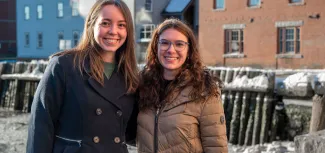
Samantha Ryea found more than a career path through her research internship. She found friendship, as well.
The vast, rugged terrain and turbid waters of Alaska’s Cook Inlet are flanked by snow-capped mountains and dotted with colorful fishing boats. Diverse ecosystems in this region create an unbelievably beautiful landscape — so Samantha Ryea has been told, or, at least, she has seen in photos.
Ryea has never been to Alaska, but the University of New England senior is already deeply entrenched in this stretch of coastline near Anchorage through an internship as part of her studies in the University’s marine affairs degree program.
This semester, Ryea ’25 is assisting an environmental consulting firm, Nuka Research, to collect data on the biodiversity of marine life in the Cook Inlet and nearby Kodiak Island. The goal of the project, she said, is to map the species that reside in the area to inform policy decisions, protect wildlife, and conserve marine resources.
The study area is dotted with settlements that exemplify the region’s maritime heritage: Anchor Point, Clam Gulch, Sunrise, and Beluga among them.
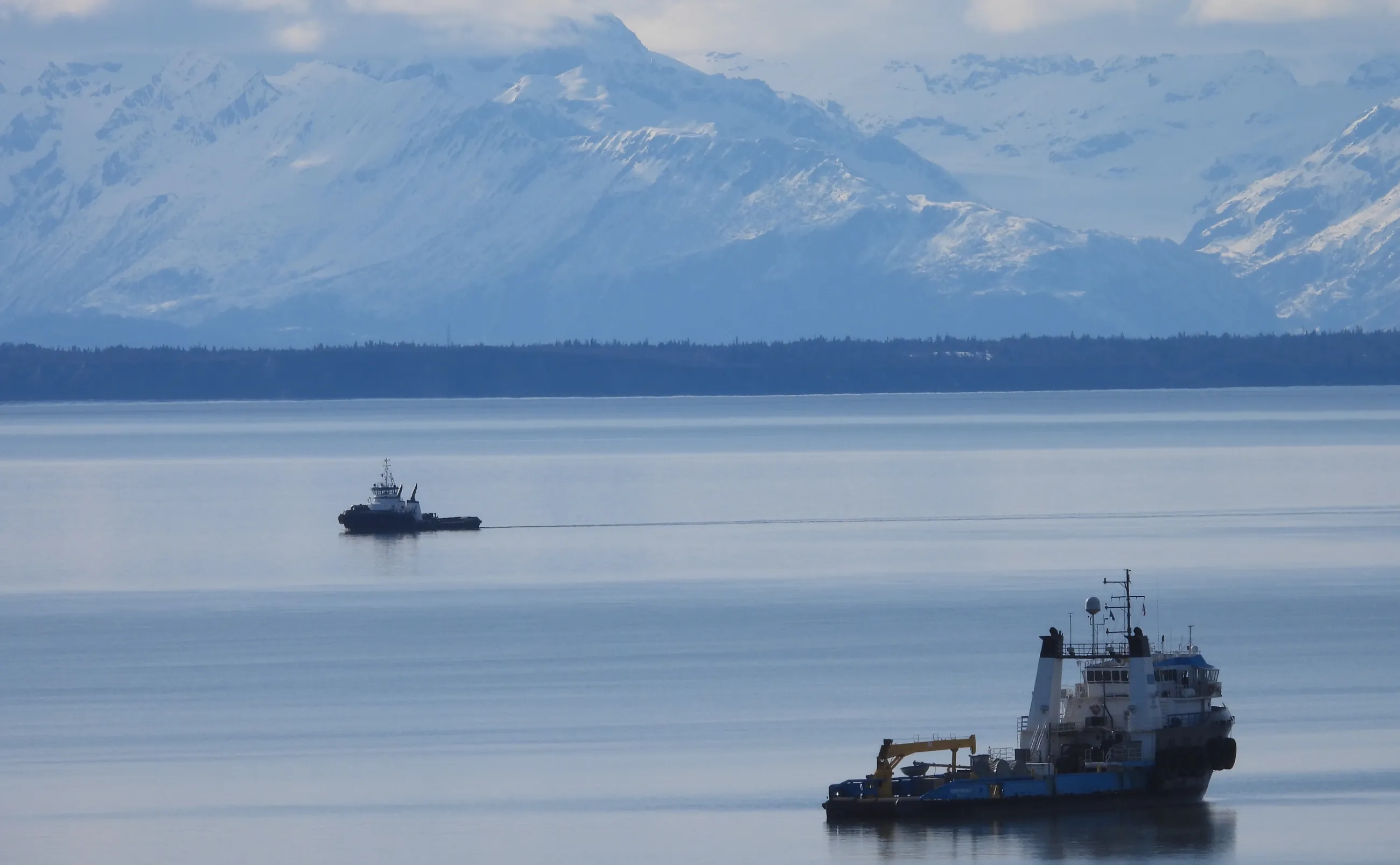
The serene scenes of Alaska’s Cook Inlet include tugboats, low clouds, and snow-capped mountains. Photo courtesy of Haley Griffin.
More than 3,000 miles away in Portland, Maine — with its own famed nautical legacy — Ryea spends her days analyzing habitat data, plotting points on digital maps, and examining how human and environmental changes may impact marine populations in the coming years.
The work is meticulous, but it has given her a hands-on role in a real-world research project — one she said has only deepened her passion for conservation science.
“This (internship) feels exactly how I would hope a job feels: very fulfilling and purposeful,” Ryea said, adding that the remote capabilities offer flexibility both in working hours and in learning about habitats previously unknown to her. “I really like learning about an area that I knew nothing about prior. It’s a cool connection to have.”
And, while the nature of her work may be remote, Ryea is not doing it alone.
Guiding her through this process is Haley Griffin, B.A. ’22 (Marine Affairs), a UNE graduate who now works full-time at Nuka Research as a research associate, a position she earned as a result of her own internship with the bicoastal firm.
Now, Griffin is paying her experience forward, mentoring Ryea through the complexities of remote data collection, the nuances of Alaskan ecosystems, and the transition from student researcher to environmental professional.

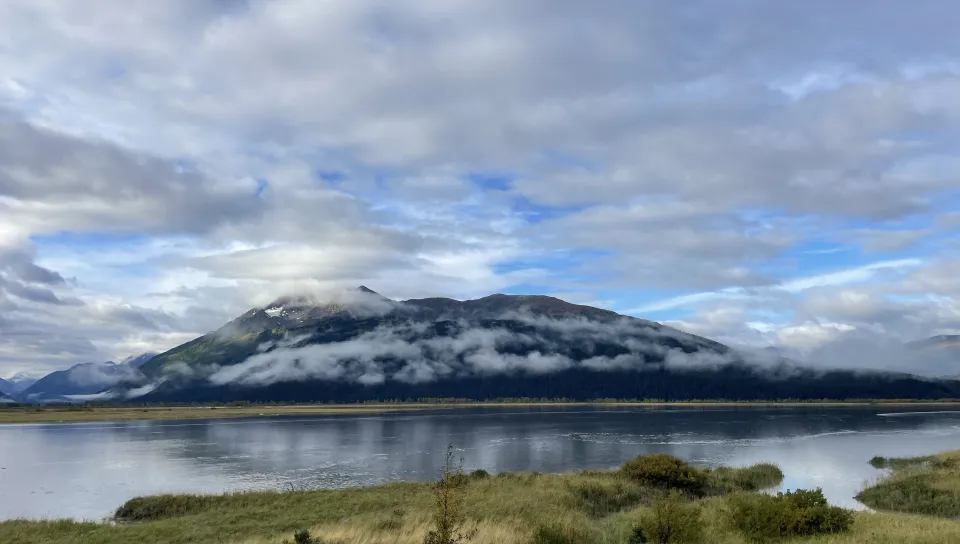
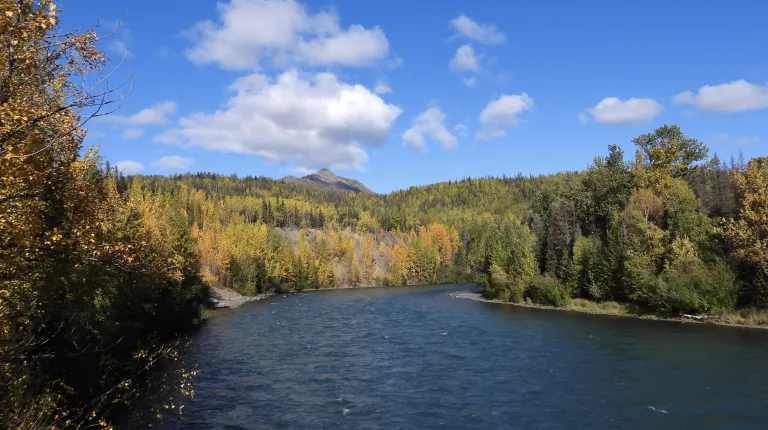
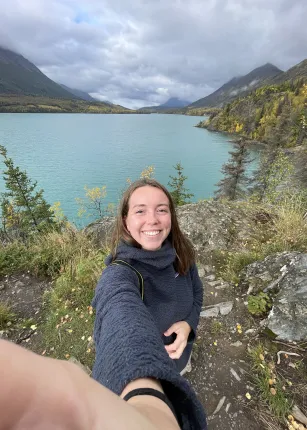

(Clockwise, from top left): Haley Griffin, left, and Samantha Ryea pose in front of Portland’s working waterfront; a mountain rises above the Turnagain Arm of Cook Inlet; Ryea looks out at Casco Bay; a selfie of Griffin from the 49th state; Kenai National Wildlife Refuge. Submitted photos courtesy of Haley Griffin.
“It’s incredibly rewarding to be able to support another UNE student in this field,” Griffin said. “I know how valuable it is to have someone to bounce ideas off of, to guide you, and to help connect the dots between coursework and career. We’re both learning — me as a manager and Sam as an employee — and it’s nice to continue working together as part of the UNE community.”
For Ryea, this mentorship has been transformative. She credits Griffin not only with helping her refine technical skills but also with expanding her understanding of what a career in marine policy and conservation could look like.
“This internship feels like a very unique experience, one that I probably would not find at a larger school,” she said. “I feel very honored to have connected with Haley. She has given me so much good advice around academics, professionalism, and work-life balance, and they are all things I will definitely carry with me.”

Ryea hopes to continue working in marine conservation after graduation, whether through further research, policy work, or environmental consulting. She credits both her UNE experience and her internship with Nuka Research for giving her a clearer vision of what’s possible.
As for Griffin, she looks forward to the next generation of UNE students who will follow in her footsteps, bringing fresh ideas and perspectives into the field.
“This is exactly how these opportunities should work,” Griffin said. “They are about building connections, sharing knowledge, and helping each other find our way. I had great mentors, and now I get to be one. That’s the best part.”